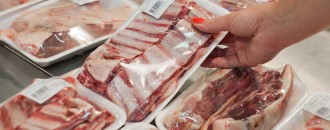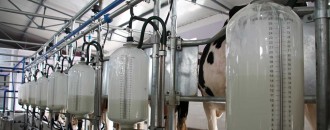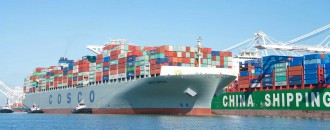
China imposes tariffs on 128 US products, escalates trade war
The Dollar Business Bureau In retaliatory action against the duties on aluminium and steel by the US, China has imposed new tariffs of up to 25% on 128 US products ranging from frozen pork to wine and certain fruits to nuts, escalating the fears of a possible trade war between the two largest economies of the world. The imposition tariffs by Beijing are in response to the 25% on duty on steel and 10% on aluminium that have been levied by the President Donald Trump, according to a statement by the Chinese Finance Ministry on Sunday. However, Trump has temporarily excluded imports from the countries such as European Union, Brazil, Canada, Argentina, Australia, South Korea and Mexico. Over the past few weeks, Chinese officials ...

DGAD continues definitive ADD on imports of opal glassware from China and UAE
The Dollar Business Bureau The Directorate General of Anti-dumping has decided to continue the definitive anti-dumping duty on the imports of opal glassware from China and UAE. This was conveyed through a notification no.- 37/2017-CUSTOMS (ADD) dated August 9, 2017. According to the notification Opal Glassware exported by China PR will attract a duty of 30.64% of the cost insurance freight (CIF) value, while those from UAE will attract a duty of 4.38% of CIF value. The Indian petitioners M/s. La Opala RG Limited and M/s. Hopewell Tableware Pvt. Ltd. had filed for an investigation into the dumping of Opal Glassware sometime in 2010. The ADD on opal glassware from both the countries will be valid for the next 5 years.

China bans import of meat from 6 Australian companies
The Dollar Business Bureau China has barred the import of beef and lamb from six Australian companies, raising worries about the reliability of the country’s $750 million meat export trade with the East Asian nation. The temporary ban is linked to meatworks in certain locations across the three Australian states, with import authorities of China imposing the ban due to non-compliance of labels with paperwork. However, it is believed that the meat import ban by China is in retaliation for Australia’s move earlier this year for banning the imports of all fresh and cooked prawns from the Asian powerhouse. The prawn ban, which also impacted the prawns from Vietnam, was imposed by Australian government after the outbreak of white spot disease that devastated various ...

Ban on imports of Chinese milk and milk products extended by a year
The Dollar Business Bureau India had imposed a ban on milk and milk products being imported from China starting in 2008 and since then has been extending it. The ban which expired on June 23 this year was extended for another year i.e till June 23, 2018 as per notification no., 10/2015-2020 dated June 22, 2017, issued by the DGFT. It was found that the milk products (including chocolates and chocolate products and candies/confectionary/food preparations with milk or milk solids as an ingredient), including milk imported from China, contained toxic products that are used for making plastics and fertilisers. India is the world’s largest producer and consumer of milk and milk products. According to the National Dairy Development Board, milk production in 2015-16 was 155.5 ...

Chinas exports up 8.7%, imports 14.8% in May
The Dollar Business Bureau Belying the expectations of analysts, China's exports grew 8.7% in May compared to the previous year, while imports rose 14.8%, according to an official data. With this, the country was left with a trade surplus of about $40.81 billion for May, the Chinese government agency General Administration of Customs of China on Thursday said. Exports in the month of May from the largest exporter of the world were expected to grow at 7%, easing a little from 8% growth in April, according to the analysts polled by Reuters. However, the imports into the country decreased to 8.5%, after a growth of 11.9% in the preceding month. The analysts were expecting the trade surplus of China to have expanded to $46.32 billion ...

India considers imposing ADD on imports of O-Acid and Sewing Machine Needles from China
The Dollar Business Bureau The DGAD in its latest notification no's- File No.14/31/2016-DGAD & F.No.15/02/2016-DGAD, dated May 23, 2017, reveals that the preliminary findings into the investigation concerning the dumping of Ofloxacin Acid and Sewing machine needles originating in or exported from China PR have been found to be relevant. Ofloxacin Acid also called O-Acid is an intermediate chemical for manufacture of Ofloxacin, which is a synthetic chemotherapeutic antibiotic of the fluoroquinolone drug class considered to be a second-generation fluoroquinolone, generally used to treat a variety of illnesses including bronchitis, pneumonia, and infections of the skin, bladder, urinary tract, reproductive organs, and prostate, as well as used in the making of generic drug equivalents for oral and intravenous administration. This drug is ...

Indian Customs rescinds soda ash anti-dumping duty on 9 countries
The Dollar Business Bureau The CBEC in its recent notification no’s 55 and 56 issued on Dec 21 has rescinded the anti-dumping duty imposed on imports of soda ash from 9 countries. This step has been taken though the final findings of the investigation were challenged in the High Court of Gujarat and the court is yet to give its final verdict. Soda ash is generally used in commercial, domestic and laboratory uses or more simply used in the production of various types of glass (flat glass, container special packaging glass, fibreglass for insulation and other glass products) alkali products, detergents and soaps. India imports soda ash from China (P.R), EU, Kenya, Pakistan, Iran, Ukraine, U.S.A, Turkey and Russia. In its notification the CBEC ...

Chinas November trade grows, signals industrial recovery
The Dollar Business Bureau China's November imports grew at 6.7% year-on-year, the fastest pace in over two years, led by a strong pick up in domestic demand of commodities including coal and iron ore, while exports also rose marginally, thereby reflecting a pickup in Chinese and global markets demand. According to the latest data release, China’s exports grew 0.1% against a year ago period, confounding predictions of a 5% decline. Imports too defied expectations for a drop of 1.3% as predicted earlier. China's imports of major commodities including coal, copper, crude oil, iron ore and soybeans surged in November, notwithstanding a sharp decline in its Yuan currency. Demand in China’s major trade partners rose significantly, as the United States and Europe accounted for a ...


